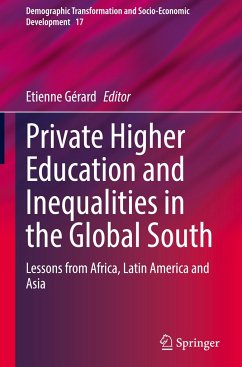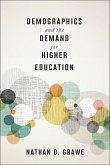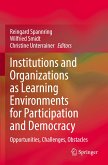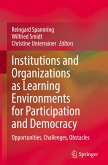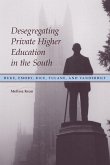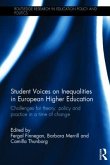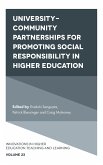Based on original findings from research carried out in six low- and middle-income countries in Africa, Asia and Latin America, this book brings together conceptual and empirical analyses of private higher education and social and academic inequality, a topic largely unexplored in the social science literature, particularly on private higher education. Field surveys of different categories of actors in numerous private universities have combined common methods and tools in countries chosen for the differences in their social structures and the characteristics, organization and development of their private higher education systems. Based on these qualitative surveys, combined with available quantitative data on higher education, this book analyzes the production and reproduction of social and academic inequalities in countries as diverse as Argentina, Mexico, Peru, the Democratic Republic of Congo, Senegal and Vietnam.
Finally, the historical and social structuringof the private education systems in the selected countries provides the framework for analyses that go beyond the traditional higher education demand/supply and public policy approaches to explore the perspective of the actors - institutional administrators, teaching staff and students.
Finally, the historical and social structuringof the private education systems in the selected countries provides the framework for analyses that go beyond the traditional higher education demand/supply and public policy approaches to explore the perspective of the actors - institutional administrators, teaching staff and students.

